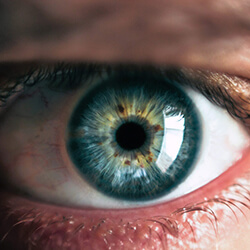Cataracts
One of the disadvantages to having cataracts is the eventual progression of impacted vision. As Because cataracts develop gradually in stages, at some point patients will find it difficult to drive at night, due to both low-light conditions as well as glares or halos around light. Cataracts cause light to be distorted especially at night, […]
Read
More
Cataracts
With any distortion to vision, color perception may also be affected. Cataracts are the clouding of the eye’s natural lens and progress gradually in four4 stages. In each of these stages, not only does the cataract itself change color but in addition to blurred or cloudy vision, can make certain hues look faded or tinted. […]
Read
More
Comprehensive Eye Exam
Technology has us all connected, all the time. From waking up in the morning checking social media on your phone to opening your computer’s browser and email to begin the workday to Netflix and chill to relax in the evening, you may be surprised to learn that the average American spends 7 hours and 4 […]
Read
More
Comprehensive Eye Exam
Your eyes may be telling more about your health than you realize. A comprehensive eye exam at Pendleton Eye can surprisingly diagnose diseases beyond eye health ranging from high cholesterol or liver disease to diabetes and multiple types of cancer. The eyes can be windows into the overall health of your body that may be […]
Read
More
Cataracts
As the eyes age, the normally clear lens of the eye that focuses light behind the iris and pupil begins to turn yellow and clouded due to a breakdown of proteins. Vision then becomes hazy or blurry like looking through a frosted or fogged-up window. When a cataract interferes with a person’s ability to complete […]
Read
More
Comprehensive Eye Exam
By undergoing a comprehensive eye exam at Pendleton Eye, you are proactively playing a role in the preventative care of your eye health and vision clarity There are many vision problems and eye diseases that do not present with obvious symptoms until either the issue progresses resulting in impaired vision or has advanced far enough […]
Read
More
Cataracts
Cataracts usually develop simply due to natural aging, most common in people aged 60 or older. More than half of Americans aged 80 or older have cataracts or have had cataract removal surgery. Cataracts are a slow, progressive development over many years eventually causing blurry vision. In fact, often people are unaware that they have […]
Read
More
Cataracts
After successful cataract surgery, cataracts will not return. There is a condition known as secondary cataracts that is often confused with the return of cataracts after surgery, but they are not the same. To better understand the difference, it is important to know what cataracts are, how they develop and the outcome of cataract surgery. […]
Read
More
Glaucoma
Routine eye examinations are essential to help detect eye disease such as cataracts, macular degeneration and glaucoma. As the second leading cause of blindness worldwide, glaucoma affects more than 3 million Americans. Glaucoma is a group of eye diseases that causes damage to the optic nerve, located at the back of the eye. Intraocular pressure […]
Read
More
Retina
Eye floaters are mostly caused by changes in the vitreous of the eye brought on by age. Tiny fibers in the jelly-like substance inside the eyes tend to clump causing shadows on the retina. When this happens, eye floaters are noticeable in vision. Eye floaters are generally painless and more of a nuisance than any […]
Read
More














